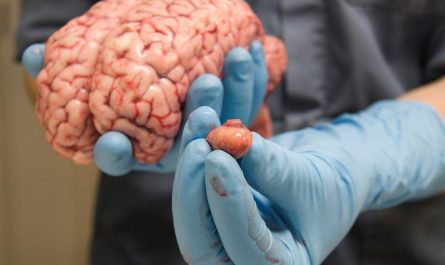
Introduction
The poultry industry has experienced immense growth in the past few decades to meet the rising demand for chicken meat and eggs. While this growth has benefited consumers and farmers, it has also led to intensive farming practices and overreliance on antibiotics. Using antibiotics routinely in healthy poultry flocks raises many human health concerns that require urgent attention.
Routine Use of Antibiotics
Industrial chicken and turkey farms house thousands of birds in tightly packed sheds. These conditions are ideal for diseases to spread rapidly. To prevent outbreaks, farmers routinely give antibiotics to entire flocks through their food and water, even when birds show no signs of illness. This practice of disease prevention, known as prophylaxis, has been common since the 1950s. Studies show that in the US, over 70% of all medically important antibiotics sold are used in livestock, including poultry. Prophylactic use of antibiotics in poultry accounts for a significant portion of this.
Rise of Antibiotic-Resistant Bacteria
When antibiotics are overused on farms, it puts immense selection pressure on bacteria. Bacteria naturally develop resistance to survive. The routine use of antibiotics in poultry has led to a rise in antibiotic-resistant bacteria. Many studies have found methicillin-resistant Staphylococcus aureus (MRSA) and extended-spectrum beta-lactamase (ESBL)-producing bacteria in chicken and turkey meat. Researchers are also finding antibiotic-resistant Salmonella, Campylobacter, and E. coli in retail poultry. When people consume such meat, these resistant pathogens can spread to humans through food.
Human Health Impacts
Antibiotic-resistant infections now claim thousands of lives each year. The WHO warns that if no action is taken, drug-resistant diseases could cause 10 million deaths annually by 2050. Studies show that resistant bacteria from food-producing animals can directly infect humans or pass on their resistance genes. This makes many common infections untreatable. Resistant Salmonella, Campylobacter, and E. coli from poultry are associated with a variety of illnesses like bloodstream infections, urinary tract infections, and pneumonia in humans. Resistant infections result in longer hospital stays, increased costs of healthcare, and adverse outcomes like death. They disproportionately affect young children, the elderly, and those with weak immunity.
Lack of Treatment Options
If antibiotics continue to be misused in agriculture, we may soon find ourselves in a “post-antibiotic era” without effective treatments for many bacterial diseases. Experts warn that some “superbugs” may become resistant to all known antibiotics. This could potentially roll back medical advances of the past century and threaten routine surgeries, transplants, cancer chemotherapy, and care of preterm infants. Resistance also undermines antibiotic efficacy for veterinary medicine. If effective antibiotics are not available to treat sick livestock, more animals may die due to common infections and diseases. Both human and animal health would be jeopardized without viable antibiotic options.
Role of Good Farming Practices
Rather than relying excessively on drugs, the poultry industry needs to adopt better animal husbandry techniques and hygienic practices to promote flock health and biosecurity. This includes adjusting stocking densities, providing more space per bird, improving ventilation, cleaning houses between batches, and implementing an all-in/all-out production system. Strong biosecurity protocols like footbaths, use of protective clothing, and limiting access can stop spread of diseases between farms. Selecting disease-resistant breeds and strengthening farm biosecurity are prudent long-term solutions over chemical dependence.
Government Interventions Required
To phase out misuse of medically essential antibiotics on farms, regulatory restrictions are required on their non-therapeutic use. The FDA and EPA have limited the use of some antibiotics for growth promotion and disease prevention in food animals. However, more stringent regulation and enforcement of veterinary oversight is still needed for prudent use of remaining drugs. Financial incentives have also motivated farmers to reduce antibiotic reliance. The European Union has banned the prophylactic use of antibiotics in animal feeds since 2006. Studies show the resulting impact on reducing antibiotic-resistant bacteria in meat and the environment. Stronger policies and interventions by governments globally are imperative to preserve these drugs to treat human disease.
Consumer Role in Creating Change
Power ultimately lies with informed consumers who opt for sustainably raised products. When shoppers carefully select meat and poultry labeled “antibiotic-free” or from farms with good animal welfare standards, it incentivizes producers to adopt responsible practices. Public awareness campaigns help citizens understand risks of resistance from animal agriculture and their role in reducing demand for indiscriminate drug use. Individual choices, together with concerted regulatory efforts, will be integral in transitioning the livestock industry towards more resilient and judicious antibiotic stewardship.
Concluding Remarks
The scale, intensity, and industrialization of poultry farming have led to overdependence on antibiotics to ward off diseases under crowded, stressful conditions. This widespread, long-term misuse poses an existential threat as drug-resistant bacteria evolve and jeopardize human medicine. Alternative approaches balancing animal health, welfare, and responsible antibiotic use are needed. Reducing reliance through good hygiene, biosecurity practices, oversight on antibiotic sales and use, strengthened policies, and informed consumer choices can help revolutionize farming practices and safeguard global public health from the looming crisis of antimicrobial resistance.
*Note:
1. Source: Coherent Market Insights, Public sources, Desk research
2. We have leveraged AI tools to mine information and compile


